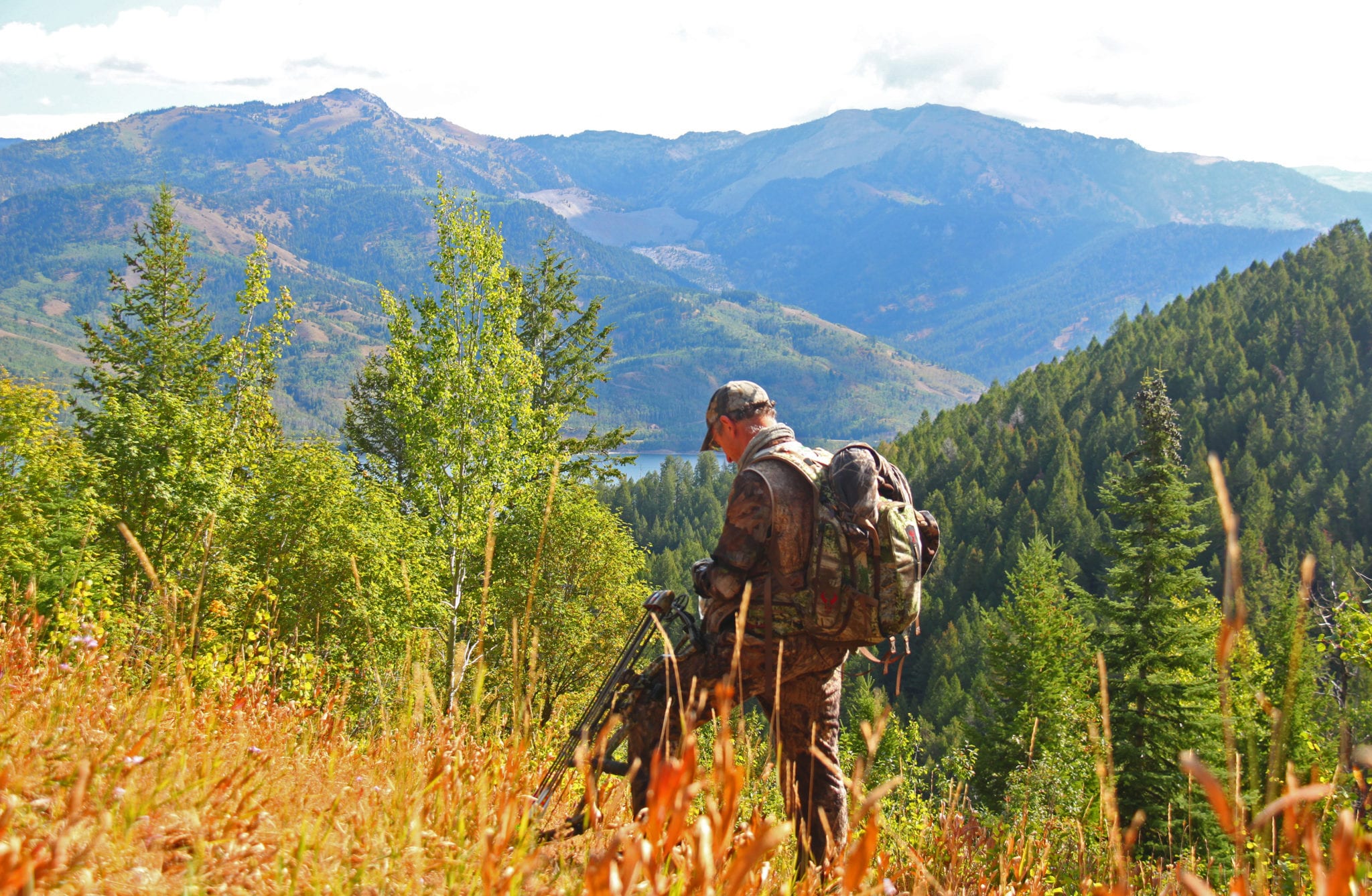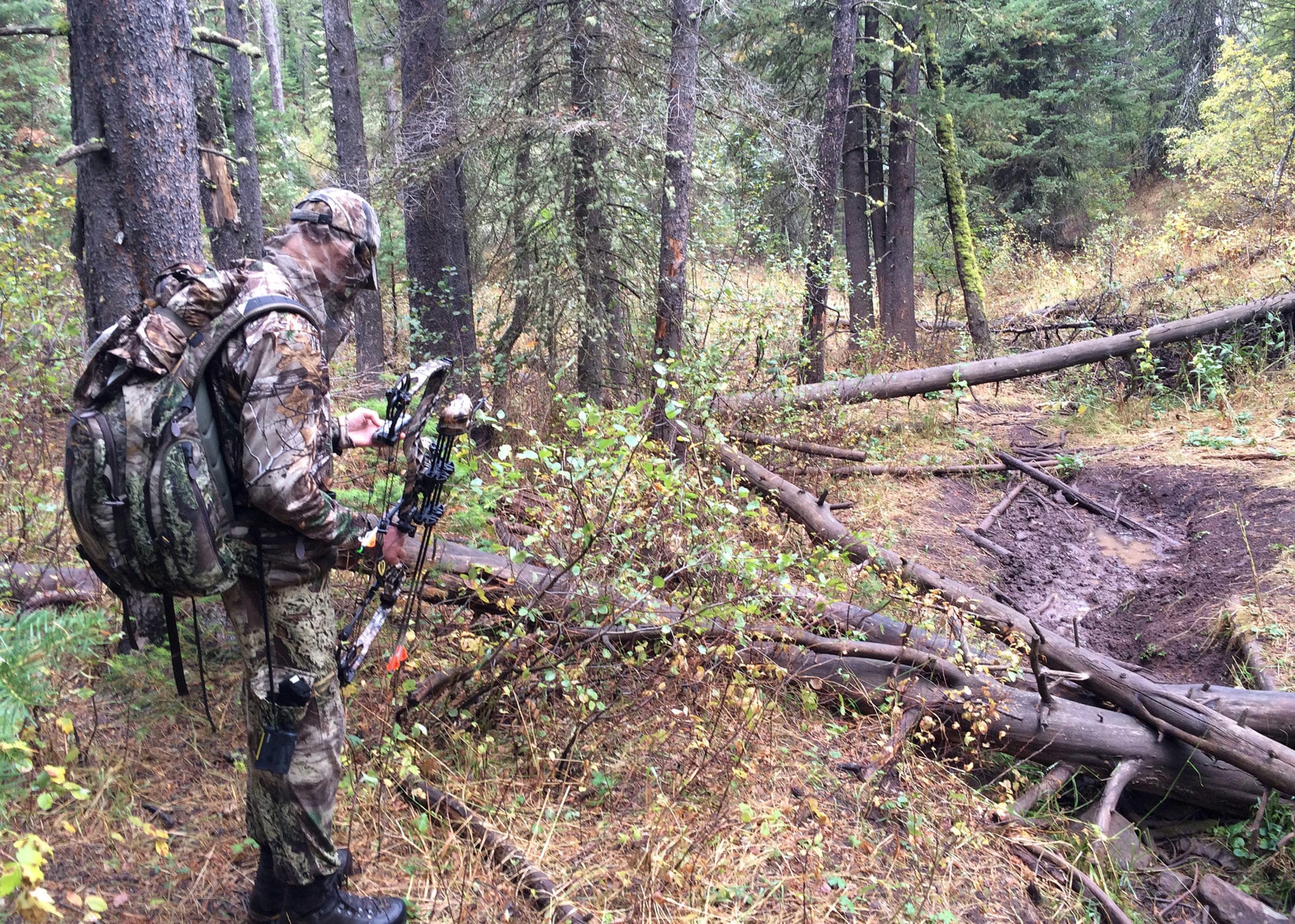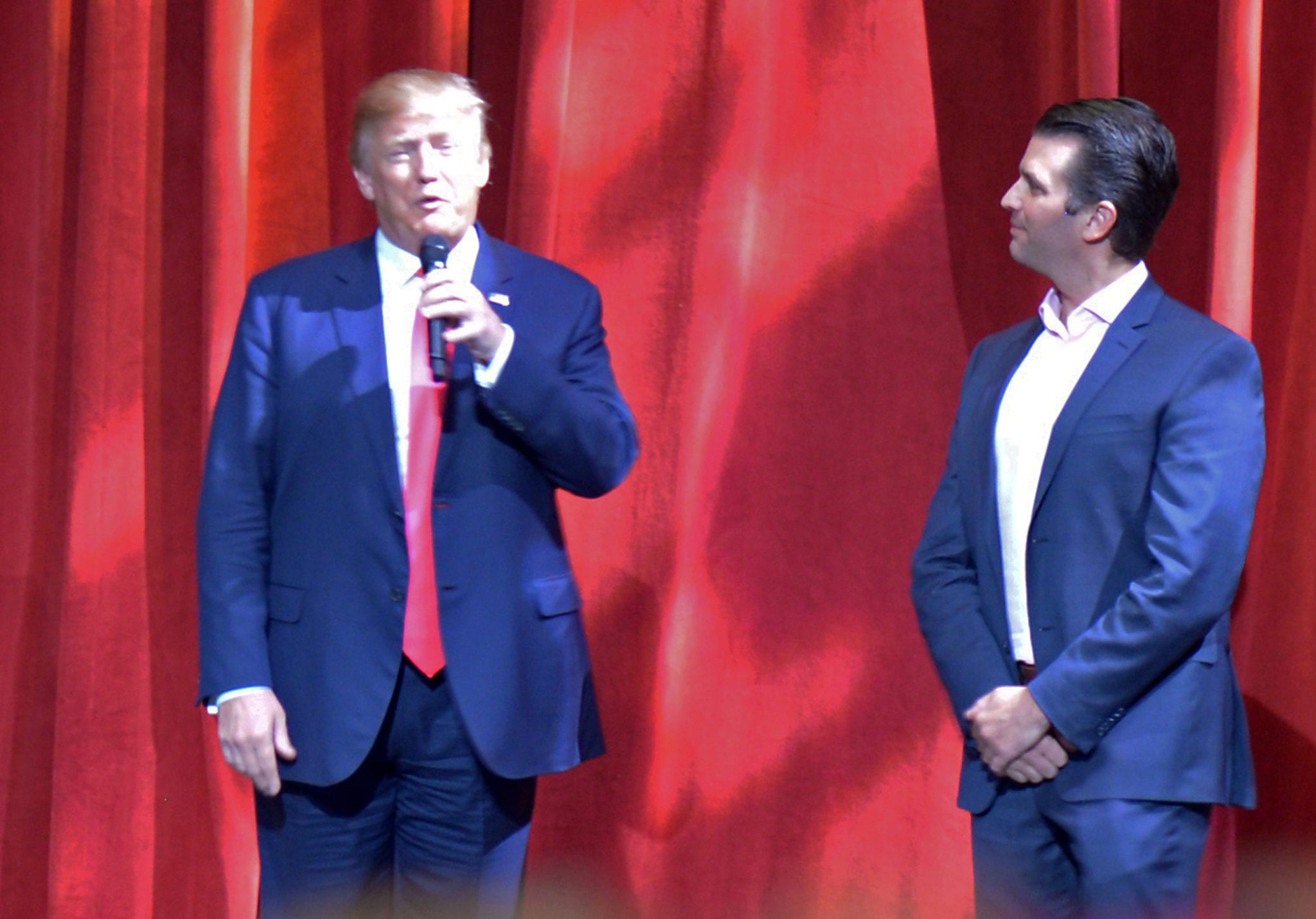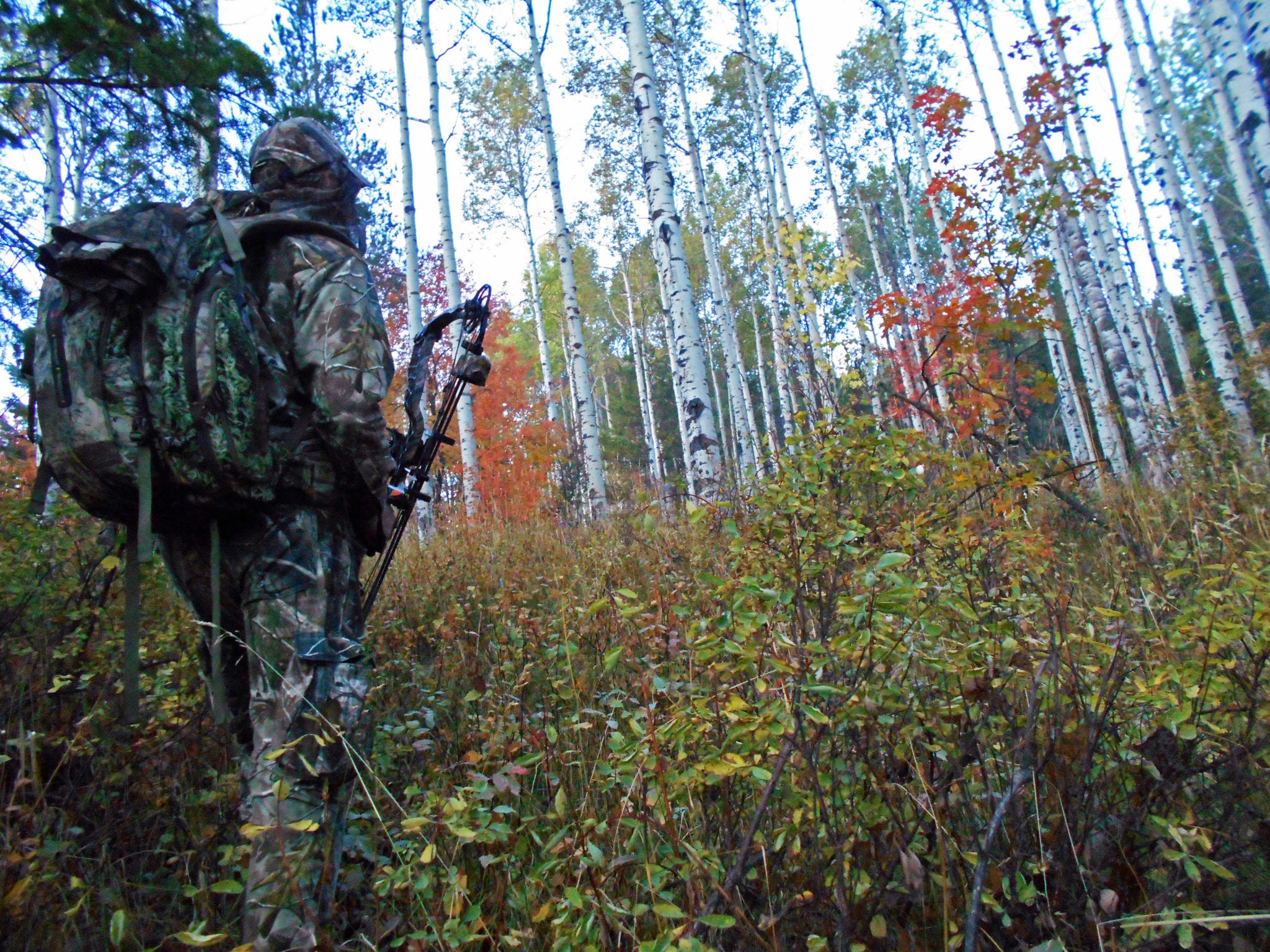Many environmentalists nationwide aren’t pleased that President Trump picked Congressman Ryan Zinke, R-Montana, to run the Interior Department, but most hunters, anglers and other conservationists who value public-lands recreation support the pick.
Hey folks, like Zinke or not, we’ve seen far worse. Or don’t you remember James Watt, who lasted 20 months as President Reagan’s secretary of the Interior?
Cringe.

In June 2016, then-Congressman Ryan Zinke was the lone Republican on the House Natural Resources Committee to vote against a bill to let states acquire up to 2 million acres of national forest lands.
Watt was a private-lands advocate who endorsed developing federal holdings for forestry and ranching, and sympathized with Sagebrush Rebellion zealots who wanted Washington to transfer all federal lands to state ownership.
Watt’s property-rights views temporarily defused the Sagebrush movement, but it resurfaced in recent years through folks like Cliven Bundy, his sons Ryan and Ammon, and their followers who seized the Malheur National Wildlife Refuge in Oregon from Jan. 2 to Feb. 11, 2016.
Watt himself lacked similar staying power. In September 1983 he mocked affirmative action by saying, “I have a black, a woman, two Jews and a cripple. And we have talent!” The resulting firestorm soon forced him to resign. But Watt’s infamy endures. In 2008, Time magazine named him one of the 10 worst Cabinet members of modern times.
So, let’s not act like Ryan Zinke is the second coming of James Watt. For starters, Zinke is a self-described Teddy Roosevelt fan who knows how to connect with hunters and anglers.
That’s no small matter, given that Zinke’s Interior Department oversees about 70,000 employees and 500 million acres of public lands, which cover roughly one-fifth of the nation. He’s also responsible for managing the nation’s fish, wildlife, minerals and endangered species. That includes oversight of the National Park Service; U.S. Fish and Wildlife Service; U.S. Geological Survey; Bureau of Reclamation; Bureau of Land Management; Bureau of Indian Affairs; Bureau of Ocean Energy Management, Regulation and Enforcement; and the Office of Surface Mining, Reclamation and Enforcement.

Hunters and conservation organizations generally support Ryan Zinke as the next secretary of the Interior, the agency that oversees about 500 million acres of federal public lands.
Zinke’s also no toady. He has routinely opposed his party’s efforts to transfer federal lands into state ownership. In June 2016, he was the lone Republican on the House Natural Resources Committee to vote against a bill to let states acquire up to 2 million acres of national forest lands. The year before, Zinke voted against the Republican budget because a Senate amendment favored federal-land transfers.
And in July 2016, Zinke resigned from the Republican party’s platform committee during its nominating convention when it called for transferring federal lands into state ownership.
Those views align with Trump’s, who was the only Republican candidate to favor keeping federal control of its public properties. When addressing the Outdoor Sportsman Awards ceremony in January 2016 at the Shooting, Hunting and Outdoor Trade Show in Las Vegas, Trump vowed that the federal government would retain its public lands to ensure they remain open to hunting and other outdoor recreation.
Trump affirmed that stance throughout the campaign, saying the issue is not so much about whether the feds or individual states own public lands, but how those properties are managed.

Donald Trump and his son, Donald Jr., voiced support for federal ownership of public lands when speaking in January 2016 at the SHOT Show in Las Vegas.
Zinke also favors full funding for the Land and Water Conservation Fund, a federal program that uses revenues from offshore oil and gas production to manage natural resources and ensure recreational access to public lands.
Maybe that’s why groups like Backcountry Hunters and Anglers, and the Theodore Roosevelt Conservation Partnership support Zinke’s selection. In December, Land Tawney, the BHA’s president/CEO, released this statement:
“Congressman Zinke understands the importance of public lands and balancing management of these important resources with energy development and other uses. … Mr. Zinke has shown himself to be receptive to the interests of a wide range of constituents and a potential ally of sportsmen and other outdoor recreationists. … We’re gratified the Trump administration is listening to our concerns, and showing a willingness to act in the best interests of the American people and our irreplaceable public-lands legacy.”
Two days later, Whit Fosburgh, TRCP’s president/CEO, released this statement: “Zinke is someone we can work with. He’s shown the courage to buck his own party on the issue of selling or transferring public lands that provide 72 percent of Western sportsmen access to great hunting and fishing. He’s a lifelong outdoorsman who we’ve found to be receptive to sportsmen’s interests in Montana and D.C. We won’t agree with him on everything, but we think he’s someone who will listen and has the right instincts.”
Zinke – a lifelong hunter, 23-year Navy veteran, and a Montana state senator from 2009-2011 – also has the support of another well-known Montana Republican, Randy Newberg, host of the “Fresh Tracks” hunting series on the Sportsman Channel, the “Hunt Talk Radio” podcast, and the “Randy Newberg Hunter” YouTube series.
Newberg, a native Minnesotan, is the hunting industry’s most outspoken advocate for public lands, and testifies regularly in Washington, D.C., and state capitols against attempts to transfer federal lands to states. His work includes a 15-episode YouTube series “Stealing Your Public Lands” (https://www.youtube.com/watch?v=UvFqQuubnyI), an in-depth look at efforts to move federal lands into the private sector.

Public lands provide about 72 percent of Western sportsmen access to great hunting and fishing lands.
After watching Zinke at work in Washington, D.C., and in Helena, Montana, the state capital, Newberg supported him for the Interior post. Newberg concedes federal agencies could manage their lands better, but also chastises Capitol Hill lawmakers for eliminating funding for crucial management programs.
“In the Lower 48, federal control preserves hunting and fishing access,” Newberg said last week in an interview with Alaska Public Media. “Even with all its warts and bumps and other problems, no one is going to advocate that federal land management is the textbook of how you do it. But if you like to hunt and fish, you would way rather have these lands in federal control than you would with (Western) state land boards.”
After Trump announced Zinke as his pick to head Interior, Zinke invoked TR in a prepared statement: “I shall faithfully uphold Teddy Roosevelt’s belief that our treasured public lands are ‘for the benefit and enjoyment of the people,’” he said. “I will work tirelessly to ensure our public lands are managed and preserved in a way that benefits everyone for generations to come. Most important, our sovereign Indian Nations and territories must have the respect and freedom they deserve.”
Such thoughts suggest our nation’s natural resources and public lands are in good hands.

 By
By 



